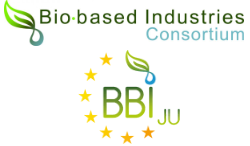Christian Sonnendecker, Wolfgang Zimmermann (Univ. Leipzig) and their PET degrading enzyme
The enzyme PHL7 shows high efficiency in plastic recycling, which attracted lots of interest in German magazines!
In the journal “BIOspektrum”, the enzyme PHL7 is described as a crucial component for the enzymatic hydrolysis of PET. The article discusses the possibilities and limitations for enzymatic plastic recycling and gives an outlook on how to move from hydrolysis in the laboratory to an industrially applicable technology.
The GIT laboratory journal, on the other hand, focuses on how to evaluate the performance of plastic-degrading biocatalysts. Impedance spectroscopy plays a role here, providing a suitable measurement method for the application of a range of plastics.
That plastic degradation is also highly relevant in the architecture scene is shown by another article published in Stylepark magazine. In order to sustainably revolutionise the current recycling of plastics with enzymatic processes, it will be important to think about using bio-based raw materials that are harmless to health and easy to recycle already in the early development phase of plastic materials. The general handling of plastics will be crucial in the future, because even the technology with PHL7 will not be able to solve all the problems of the plastic crisis in one fell swoop.
In the frame of the project MIPLACE, Christian gives us some insights how plastic degradation looks like in the lab!



